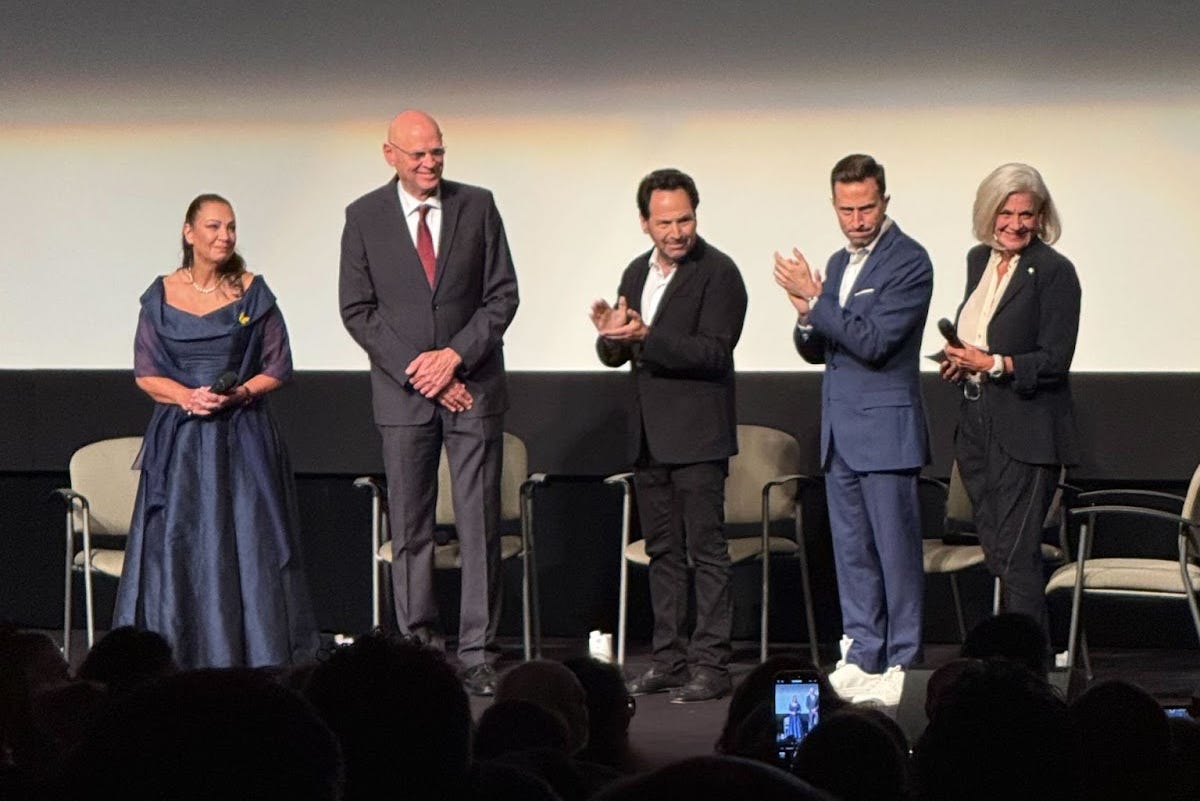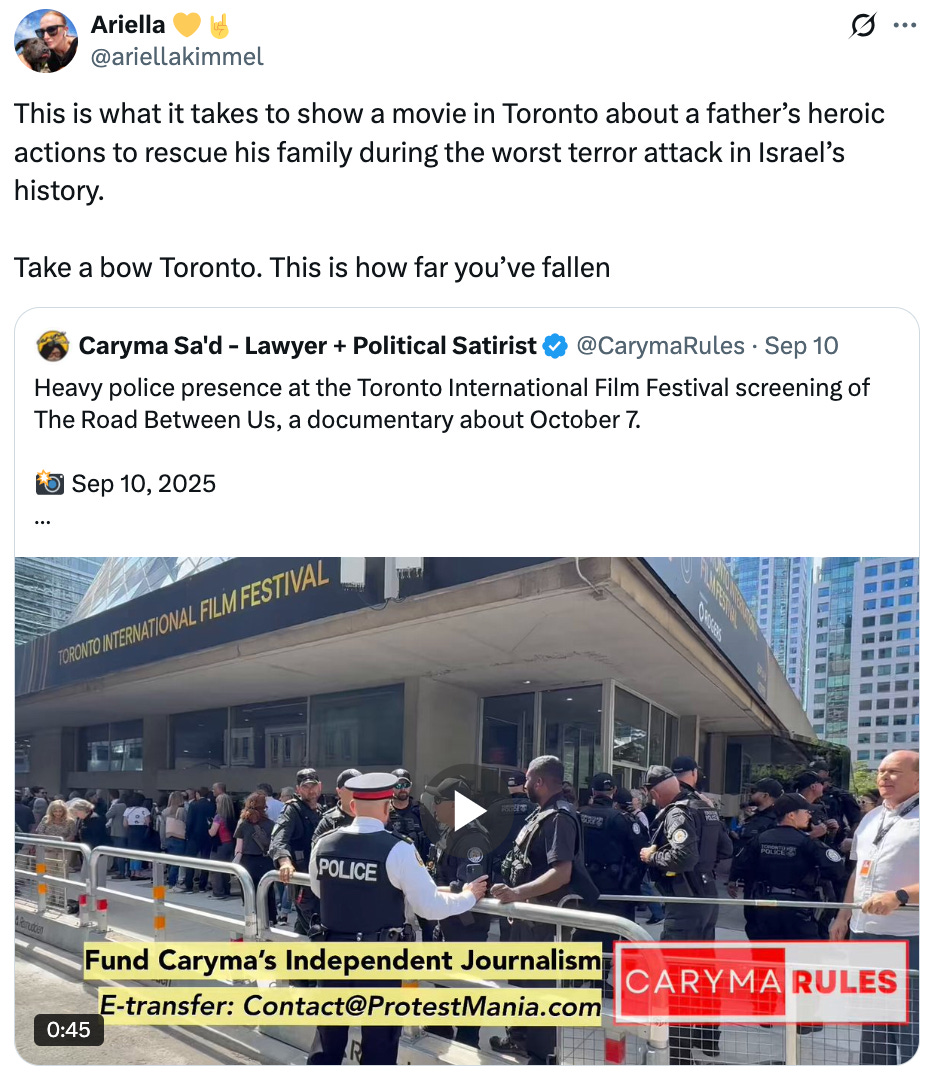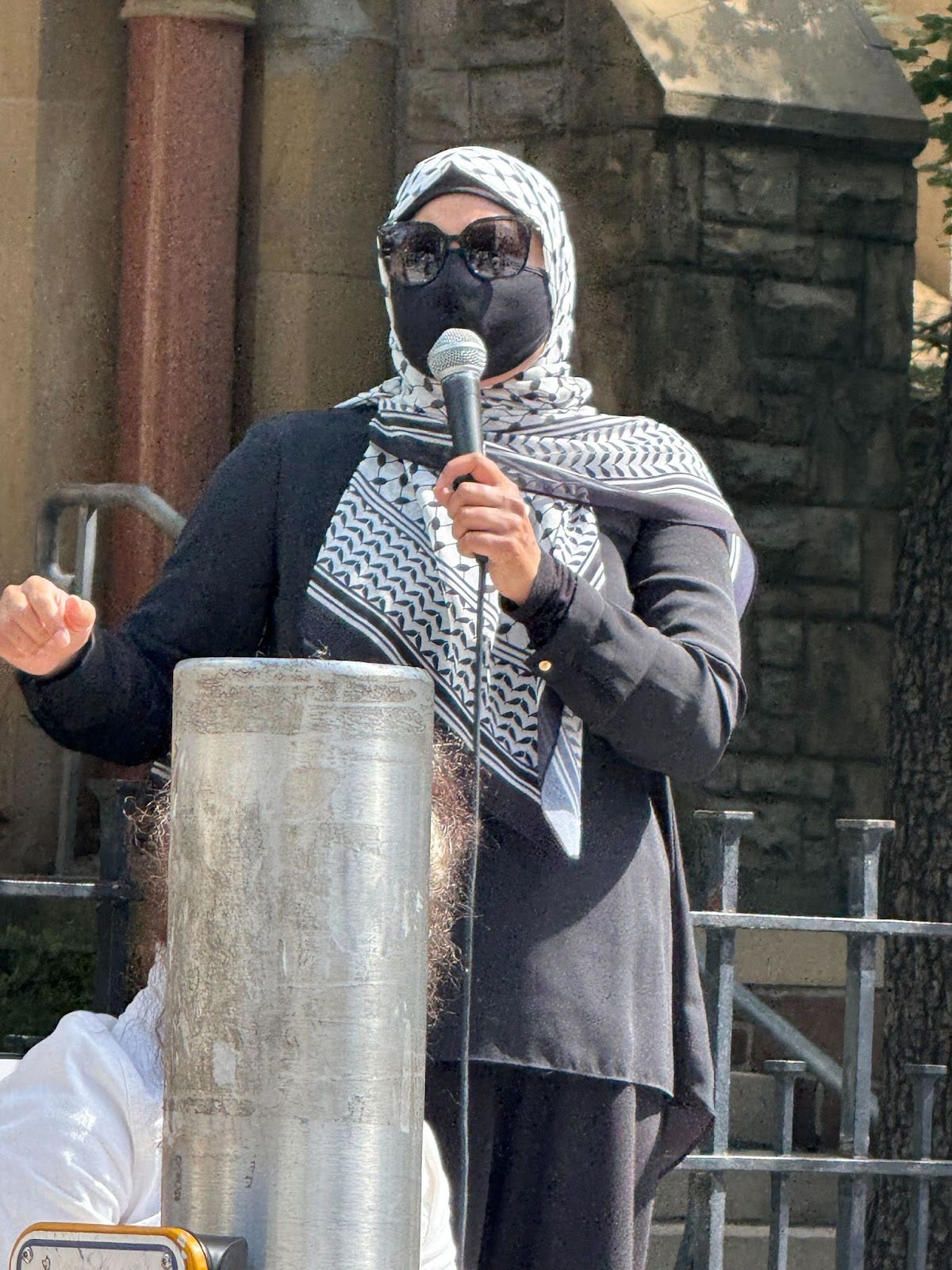OP-ED: TIFF tried to bury the Oct. 7 truth but “The Road Between Us” brought it to light
Sue-Ann Levy writes "TIFF CEO Cameron Bailey gave a rather milquetoast apology at the outset of Wednesday’s filled-to-capacity screening of the 10/7 documentary The Road Between Us."
By Sue-Ann Levy
Sorry not sorry.
TIFF CEO Cameron Bailey gave a rather milquetoast apology at the outset of Wednesday’s filled-to-capacity screening of the 10/7 documentary The Road Between Us.
He repeated his contrition at having hurt the Jewish community by initially opting to ban the film until tremendous pressure—including perhaps the threat of firing— forced him to reinstate it for one showing only, which was Sept. 10.
At the time Bailey insisted it was because director Barry Avrich didn’t get the rights from Hamas to the footage of Israelis being raped and murdered.
It was really about appeasing his “progressive” programmers, who threatened to walk off the job if the film was shown.
Still Bailey’s apology was half-hearted — to say the least — when it became apparent at the end of the film that the organizers had decided to have former left-leaning legacy media talking head Lisa LaFlamme ask questions of director Barry Avrich and the film’s main protagonists, retired IDF general Noam Tibon and his wife Dalit.
To loud boos from the mostly Jewish audience, LaFlamme claimed that since 10/7 Israel’s response has had an “aspect of revenge” and tastelessly asked the group how they felt about 65,000 Palestinians being killed in the conflict.
Her grasp on the facts was tenuous, to say the least, and she refused to read the room.
In my view, she preyed on Dalit who was guilted into saying the war should have stopped a long time ago, naively claiming the hostages would have been returned had that happened.
More about that.
But first the film.
This powerful moving documentary about how Tibon — with the help of his wife — risked his life to rescue 400 people on 10/7 did not contain the kind of horrific footage I’ve seen in other media and at the Nova exhibit.
In fact, it was tempered down to allow the story of a family trying desperately to stay alive to shine through.
Despite the horrors of what was happening on the road to and at Nahal Oz kibbutz, where hundreds of terrorists had invaded and shot anyone they could find, Tibon risked his own life to rescue his son, his daughter-in-law and their two young daughters who were trapped in a dark safe room for more than 10 hours.
The family’s dog also miraculously managed to survive despite remaining in the home.
”I was on a mission to save my family,” Tibon says in the film and during the subsequent Q and A.
As we heard from the filmmaker, the acknowledgement of where the footage came from was added to the documentary after the rough cut — whether it was from security video, Hamas GoPro footage widely distributed online or highway patrol footage.
In other words, there was no reason to ban it other than fears that people might be reminded of the truth of not just what happened but of the resilience of the Jewish people.
Using real-time footage with Tibon driving his Jeep, interspersed with footage of the attack, Avrich traces the circuitous journey taken by the hero — dubbed “Mr. 9-1-1” — to rescue his family and many others.
They managed to facilitate the rescue of one seriously wounded IDF soldier picked up at the entrance of the kibbutz and get him to the hospital on time.
We heard that he not only survived but now has a new son.
There were extensive interviews with the Nahal Oz security, who fought off as many terrorists as they could without any help from the military.
The brave head of security, Ilan Fiorentino, lost his life at age 38, leaving his young wife and three children.
The film made it abundantly clear that the military failed the Israelis that day and were nowhere to be found until hours after the attack.
Tibon called it the “biggest failure in the history of Israel” and insisted a formal investigation of the Benjamin Netanyahu government must take place.
Avrich took the high road after LaFlamme’s tasteless comments, delivered in that fake compassionate voice as she tried to elicit criticism of Israel from the people on stage.
She also contended that in the news world (she is no longer in) “they try very hard not to show too much graphic footage” as was shown in the film. (Unless it’s Palestinian propaganda of course.)
Avrich said he was drawn to the story because it is not “political” but one about the power of family.
He referred to the controversy of being banned from TIFF, acknowledging that other films may have had “certain privileges” and “more (press) screenings.
”But I’m in Roy Thomson Hall today,” he added, to tremendous applause.
He also vowed to release the film internationally.
Prior to the screening, there was a heavy police presence outside Roy Thomson Hall as a gaggle of Hamas sympathizers screamed and shouted their usual lies across the street.
The protest and tight security made some filmgoers late.
That notwithstanding, Avrich and his team produced an honest, raw and moving film, which should be seen by the activists who spew Jew hatred (not that it will be).
No matter the attempts by TIFF to ban the truth and LaFlamme to undermine it, the film proved how tenacious Israelis and Jews in the Diaspora are to ensure the story is told.





If they are proud of their movement why are they wearing masks?